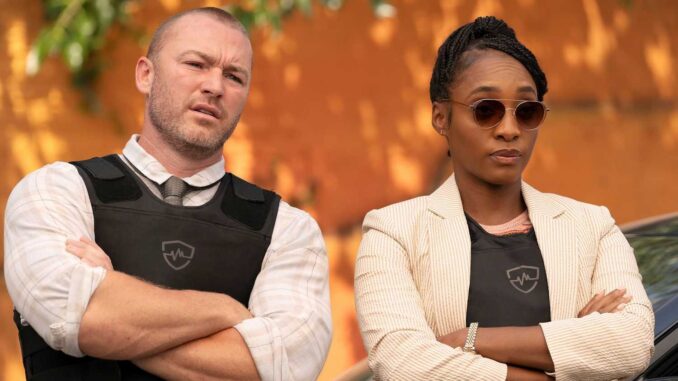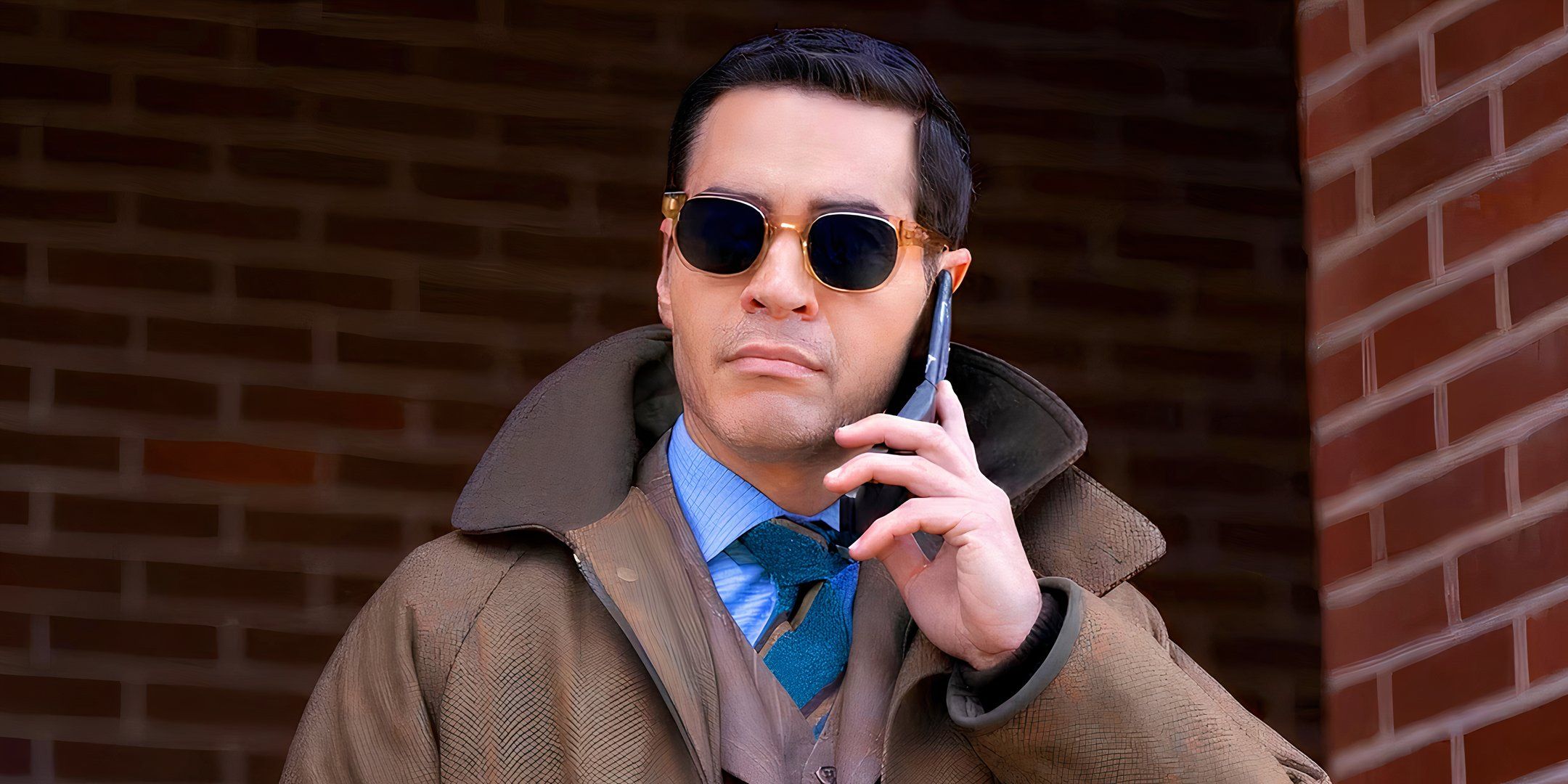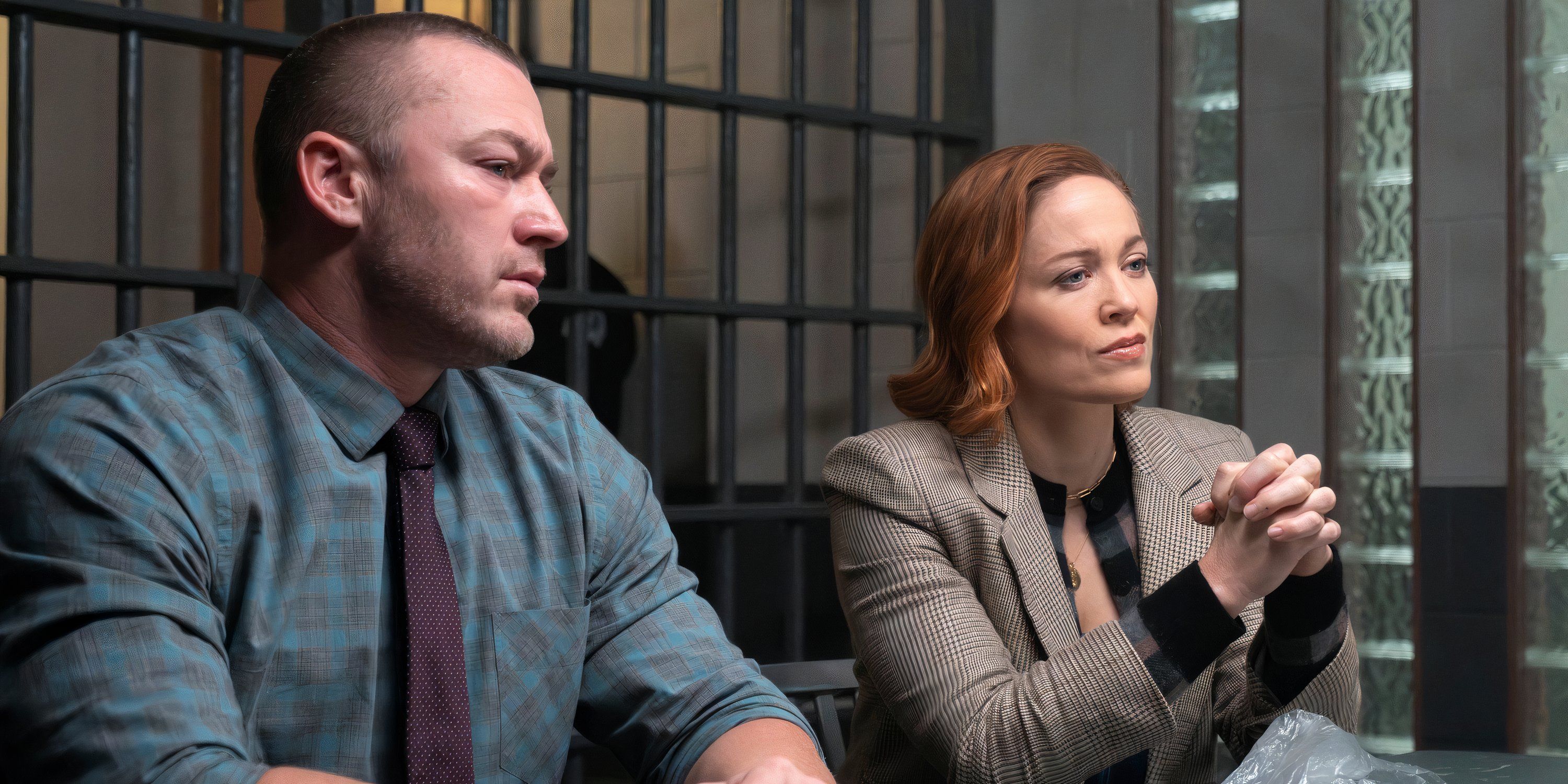
Most changes pertain to Will Trent’s cast, but they certainly don’t end there. The ABC series plays around with everything from tone to format, often serving to better orient the source content towards network TV. And while some fans hold out hope that Will Trent season 4 will incorporate more book storylines, most changes are best left as they are.
Karin Slaughter’s Will Trent Books Are Prohibitively Gruesome
The ABC Series Aims For Broader Audience Appeal
Karin Slaughter’s books aren’t for the faint of heart. Multiple novels feature vivid descriptions of underage rape and murder victims, at least one as young as 10 years old. Some scenes are uncomfortable in more bizarre ways, such as when a mother in Fractured finds her daughter’s corpse and daydreams about the day she was conceived.
ABC’s Will Trent Structures Its Detective Work Better
Triptych’s Investigation Takes Up Less Than Half Its Page Space
While it’s thankfully not a problem throughout Slaughter’s entire book series, the first Will Trent novel in particular hardly feels like a murder mystery for more than half its page length. The characters’ moral ambiguity often takes front and center, to the point that watching actual police work unfold feels almost like an afterthought.
It might be its tone, humor, and generally likable characters that make Will Trent one of the best cop shows on TV, but the ABC series also does a beautiful job of crafting compelling mysteries with enough twists to stay fresh throughout the runtime. The amount of detective work involved can vary between episodes, but it rarely feels lacking.
TV’s Will Trent Is More Charmingly Confident
Wilbur’s Self-Image In The Books Is Rather Off-Kilter

“Detective Mitchell, I think your anger is commendable, but the fact that I banged up six of your guys for skimming off of drug dealers doesn’t mean a hell of a lot to the parents who lost their kids today or the ones who are waiting to find out whether or not their daughter is still alive, and since the Atlanta Police Department mishandled this case from the get-go, and since the only reason you are still involved in this case is because I need people to do my scut work, I expect you to follow directions no matter how mundane or ludicrous my requests seem to you.”
Ramón Rodríguez plays a more affable, balanced version of Trent. Rather than vacillating between self-deprecation and outright belittling others, Will is respectfully assertive when he’s right and only loses complete confidence when his mistakes cause harm. This is especially evident in his relationship with Rafael Wexford, with whom he never claims the moral high ground unnecessarily.
ABC’s Angie Is A More Balanced Character Than In The Books
Her Treatment Of Will In The Novels Leaves Much To Be Desired
“Will felt something close to panic as he realized the dog hadn’t greeted him at the door. ‘Did you accidentally lock Betty in the closet again?’ Angie wasn’t a fan of the Chihuahua, and though Will had only taken in the little thing because no one else would, he felt very protective of her. ‘Angie?’
She smiled innocently, which ratcheted up his alarm. He still wasn’t sure the closet incident had been accidental.”
In the ABC show, Polaski battles negative self-perception on a regular basis. Will Trent season 1, episode 7 makes this particularly clear when Angie has a heart-to-heart with Betty when Will goes missing and declares her gratitude to him. She still has problems, but it’s clear that she’s a good person, and Angie’s relationship with Will Trent is a lot more loving.
ABC’s Will Trent Takes A Healthier Approach To Relationships
He Sees Himself More Objectively Than His Book Counterpart
“He felt the urge to climb onto the couch and go to sleep beside her, or maybe something else. That wasn’t how their relationship worked, though. Angie had never been the nurturing type and Will was pathologically incapable of asking for anything he needed. The first time they had met at the children’s home, she had smacked him on the side of the head and told him to stop gawking. Will was eight and Angie was eleven. Their relationship hadn’t changed much since then.”
In the series, Wilbur not only imagines but even temporarily achieves happiness with both Angie and Will Trent season 3’s Marion Alba. And when the latter relationship doesn’t work out, Will’s mature and honest enough to admit that he needs to work on himself before getting back out there. His stability isn’t reliant on Sara Linton whatsoever.
Will Trent’s Dyslexia Struggles Are Handled With More Nuance
Slaughter’s Will Obsesses Far More About Keeping It A Secret
“Even now, he would not accept that his dyslexia was anything but his own personal failure. No matter how much Angie prodded and even begged, he would not get help. By the time she met him, Will had learned all kinds of tricks to hide his problem and Angie doubted his teachers thought of him as anything but slow. His current job was no different. He used colored folders so that he could find cases by sight, and different types of paper so that he could locate them by texture.”
ABC’s Will Trent doesn’t entirely drop this character trait, but it’s much less pronounced. We see Will eating homemade meals like a functional adult, and at least enough characters have mentioned his dyslexia to battle the misconceptions about it. Will’s shame isn’t a message more impressionable viewers need to internalize, making this a necessary change for broadcast.
Amanda Wagner Is More Openly Loving Toward Will
Their Relationship’s Evolution Is Clearer In The ABC Series

Will’s boss isn’t very central to Karin Slaughter’s first Will Trent book, but Fractured begins fleshing out their relationship a bit. Although it’s unfair to say she doesn’t exhibit any of the pseudo-parental tendencies seen in the show, Will characterizes her as pitting him against nearly impossible obstacles just so he’ll owe her if he has to ask for help.
Amanda’s not as strict or manipulative in the ABC series, but she’s a lot more bluntly professional in the beginning. Her evolution into something resembling more of a mother figure happens gradually, reaching the point in season 3 that Wagner sees fit to assert protective dominance against Will’s biological father. That conversation would definitely not have happened in the books.
Sheriff Caleb Roussard Replaces Serial Killer James Ulster
Will’s Dad Opens The Door For An Interesting Foster Care Discussion
Karin Slaughter’s Criminal tells the backstory of Will Trent’s biological parents, and the dysfunction goes far beyond his being found in a trash can. Will’s dad is a serial killer named James Ulster who targets prostitutes like Will’s mother, Lucy Bennett. He was caught by Amanda and Faith’s mother, later getting out of prison to die by Angie’s hand.
TV’s Faith Mitchell Is A More Well-Rounded Character
She’s As Much A Single Mother As She Is A Cop
Especially during most of her introduction in Fractured, the Karin Slaughter books generally characterize Faith as a woman whose life is consumed by law enforcement. She and Will have an extremely hostile relationship at the beginning, and much of her character is defined by little more than the desire to follow in the footsteps of her mother’s career.
Not only does Faith add to the ABC series’ more realistic minority representation (all major book characters were white), but the show also views Faith’s character more through the lens of her role as a single mother. In addition to better fleshing out her character, this choice humanizes her and makes her overall far more sympathetic than her literary counterpart.
Michael Ormewood Is No Longer A Horrific Child Murderer
Although It Would Ironically Be More Of A Twist In The ABC Version

That’s obviously a far cry from the lovable cop he is on TV. Although Michael didn’t win fans early on with his ill temper and outright misgendering of Nico, he’s grown to become one of the most likable characters in Will Trent. Losing that growth would have been among the greatest tragedies had ABC opted for a more faithful adaptation.
